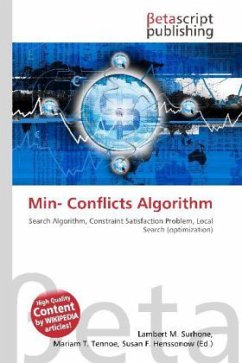
Smith Waterman algorithm
Versandkostenfrei!
Versandfertig in 6-10 Tagen
23,99 €
inkl. MwSt.

PAYBACK Punkte
12 °P sammeln!
High Quality Content by WIKIPEDIA articles! The Smith-Waterman algorithm is a well-known algorithm for performing local sequence alignment; that is, for determining similar regions between two nucleotide or protein sequences. Instead of looking at the total sequence, the Smith-Waterman algorithm compares segments of all possible lengths and optimizes the similarity measure. The algorithm was first proposed by Temple Smith and Michael Waterman in 1981. Like the Needleman-Wunsch algorithm, of which it is a variation, Smith-Waterman is a dynamic programming algorithm. As such, it has the desirabl...
High Quality Content by WIKIPEDIA articles! The Smith-Waterman algorithm is a well-known algorithm for performing local sequence alignment; that is, for determining similar regions between two nucleotide or protein sequences. Instead of looking at the total sequence, the Smith-Waterman algorithm compares segments of all possible lengths and optimizes the similarity measure. The algorithm was first proposed by Temple Smith and Michael Waterman in 1981. Like the Needleman-Wunsch algorithm, of which it is a variation, Smith-Waterman is a dynamic programming algorithm. As such, it has the desirable property that it is guaranteed to find the optimal local alignment with respect to the scoring system being used (which includes the substitution matrix and the gap-scoring scheme).












